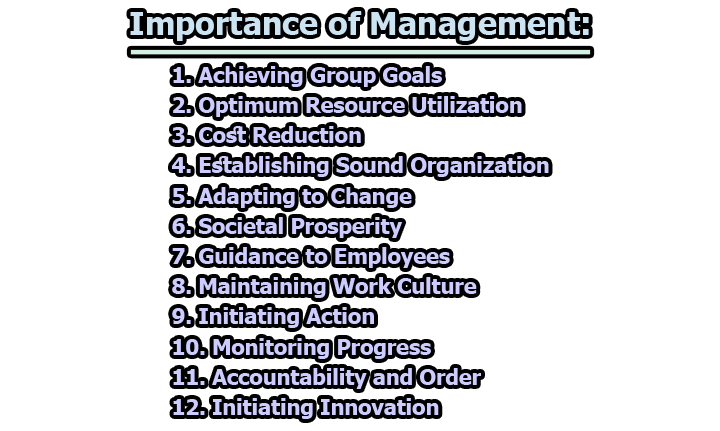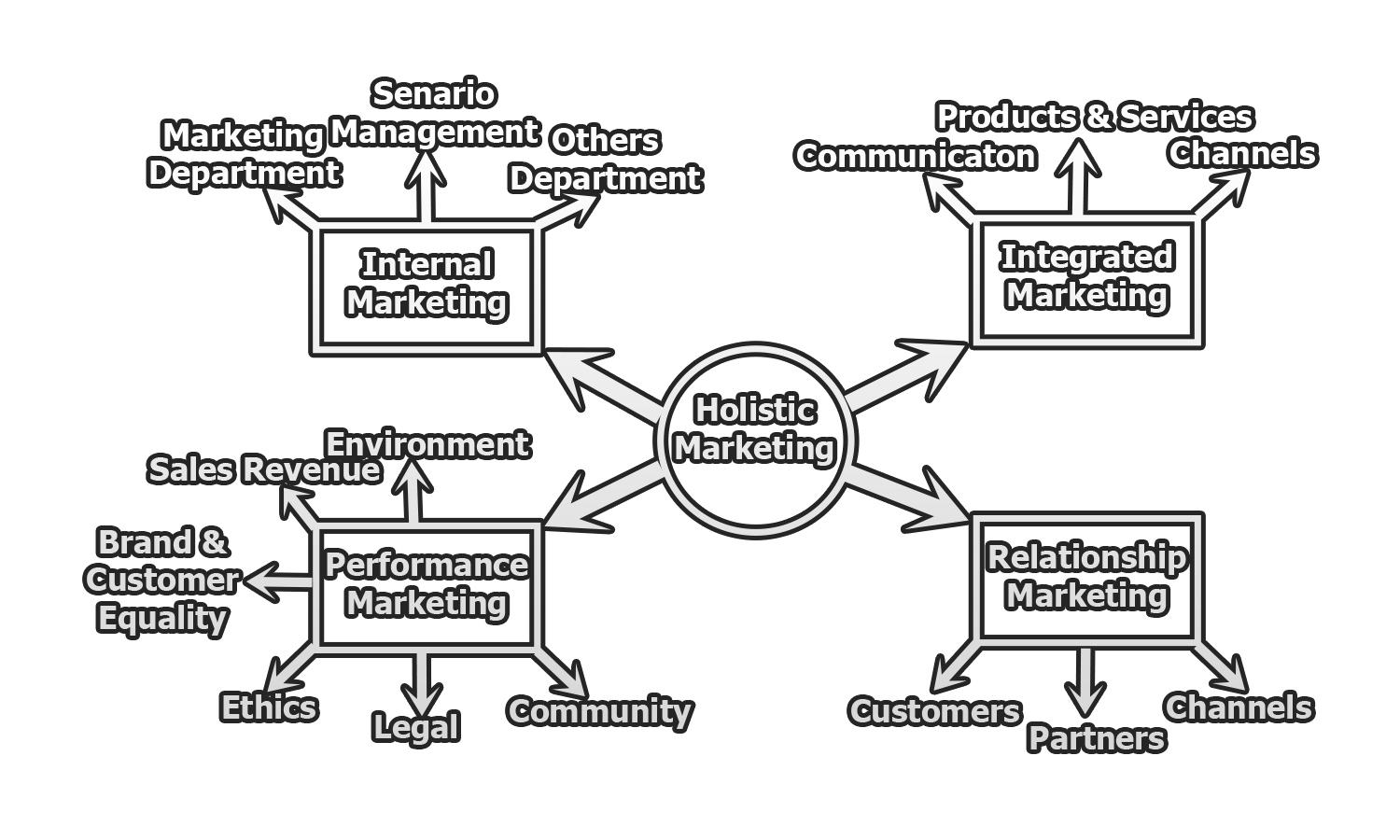Importance of Management:
In the intricate tapestry of business, one crucial thread weaves through every aspect, holding the fabric of success together—management. The art and science of management serve as the compass guiding organizations toward their goals, optimizing resources, and nurturing a dynamic work culture. This article delves into the multifaceted importance of management, exploring how it drives the achievement of group objectives, ensures the best utilization of resources, reduces costs, establishes efficient organizational structures, navigates changing environments, and contributes not only to business growth but also to the prosperity of society.
1. Achieving Group Goals: Management serves as the guiding force that aligns an organization’s resources and efforts toward achieving its predetermined goals. By defining clear objectives, managers ensure that all team members work cohesively towards a common purpose. This not only eliminates wastage of time, money, and effort but also fosters a sense of direction and purpose among employees. Through effective communication and coordination, management channels the collective energy of the workforce toward the attainment of organizational milestones.
2. Optimum Resource Utilization: One of the fundamental roles of management is to ensure the efficient utilization of resources, both human and physical. By skillfully allocating resources to various tasks and projects, managers maximize productivity while minimizing waste. This involves identifying the best possible uses of scarce resources, and ensuring that no valuable asset remains underutilized. Through careful planning and coordination, management ensures that the organization achieves the highest output with the available resources.
3. Cost Reduction: Effective management directly contributes to cost reduction by optimizing resource allocation and operational efficiency. By identifying areas of inefficiency and streamlining processes, managers can achieve more with fewer resources. This includes reducing unnecessary expenditures, minimizing overhead costs, and enhancing the overall cost-effectiveness of the organization. Cost reduction is a key focus for managers, as it enhances the organization’s profitability and sustainability.
4. Establishing Sound Organization: A well-structured organization is a hallmark of effective management. Managers create an organizational framework that clearly defines roles, responsibilities, and reporting relationships. This structure eliminates overlaps, prevents confusion, and facilitates efficient communication. By placing individuals in positions that align with their skills and qualifications, managers ensure that each employee contributes to the organization’s success. This organized structure also allows for effective delegation and accountability.
5. Adapting to Change: In today’s rapidly changing business environment, adaptability is essential for survival. Management plays a crucial role in helping the organization navigate and thrive amidst change. By monitoring external factors such as market trends, technological advancements, and regulatory shifts, managers can guide the organization in making necessary adjustments. Whether it’s modifying strategies or reallocating resources, management ensures that the organization remains agile and capable of responding to evolving circumstances.
6. Societal Prosperity: Beyond internal organizational benefits, effective management has a positive impact on society as a whole. Efficient businesses lead to increased economic production, generating wealth and opportunities. This, in turn, raises the standard of living and improves the overall welfare of people. Management-driven innovation and research contribute to societal progress by introducing new products, services, and solutions that address pressing challenges and needs.
7. Guidance to Employees: Managers provide crucial guidance and direction to employees, ensuring that everyone is aligned with the organization’s objectives. Regular communication and updates from managers help employees understand their roles, responsibilities, and performance expectations. Constructive feedback and performance evaluations enable continuous improvement and skill development. This guidance creates a sense of purpose among employees, fostering motivation and commitment to their tasks.
8. Maintaining Work Culture: A positive work culture is essential for employee engagement and organizational success. Managers play a pivotal role in maintaining this culture by creating an environment where employees feel motivated, valued, and equipped with the necessary resources. By ensuring access to tools, equipment, and training, managers empower employees to perform at their best. A nurturing work culture not only enhances employee satisfaction but also contributes to improved productivity and retention rates.
9. Initiating Action: Management provides the impetus for action within an organization. Through effective communication, managers convey the organization’s goals, strategies, and expectations to the workforce. By establishing clear channels of authority and responsibility, management ensures that decisions are made promptly, tasks are delegated appropriately, and the organization operates smoothly. Without effective management, organizations can stagnate, lacking direction and momentum.
10. Monitoring Progress: Regular monitoring and evaluation are essential for maintaining performance standards and identifying areas for improvement. Management conducts audits and reviews to measure the organization’s progress toward its goals. This data-driven approach helps managers make informed decisions, adjust strategies, and implement necessary changes. Monitoring progress allows management to track success, correct mistakes, and continuously enhance the organization’s performance.
11. Accountability and Order: An organized workforce is more accountable and efficient. Management establishes clear lines of responsibility, ensuring that each employee understands their role and contribution. This accountability minimizes confusion, prevents duplication of efforts, and enhances overall operational efficiency. A structured approach to accountability also makes it easier to measure individual and team performance accurately.
12. Initiating Innovation: Management is responsible for fostering a culture of innovation within the organization. Managers encourage employees to contribute new ideas, concepts, and approaches to solving challenges. By valuing creativity and allowing for experimentation, management can drive the organization forward through continuous improvement and innovation. This proactive approach ensures that the organization remains competitive and adaptable in a rapidly changing business landscape.
Finally, in the grand symphony of enterprise, management takes center stage as the conductor orchestrating harmonious operations. Its significance is not confined merely to boardrooms; it extends its influence into the broader societal landscape. As organizations navigate the complexities of a rapidly evolving world, effective management remains the guiding light. By recognizing the critical role of management in optimizing resources, fostering innovation, and adapting to change, businesses can chart a course toward sustained success. The ripple effects of robust management practices extend beyond profit margins, enriching communities and contributing to a brighter future.

Assistant Teacher at Zinzira Pir Mohammad Pilot School and College










